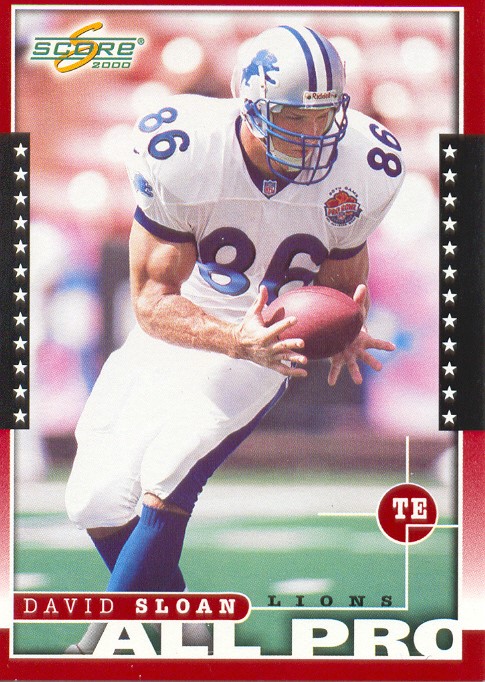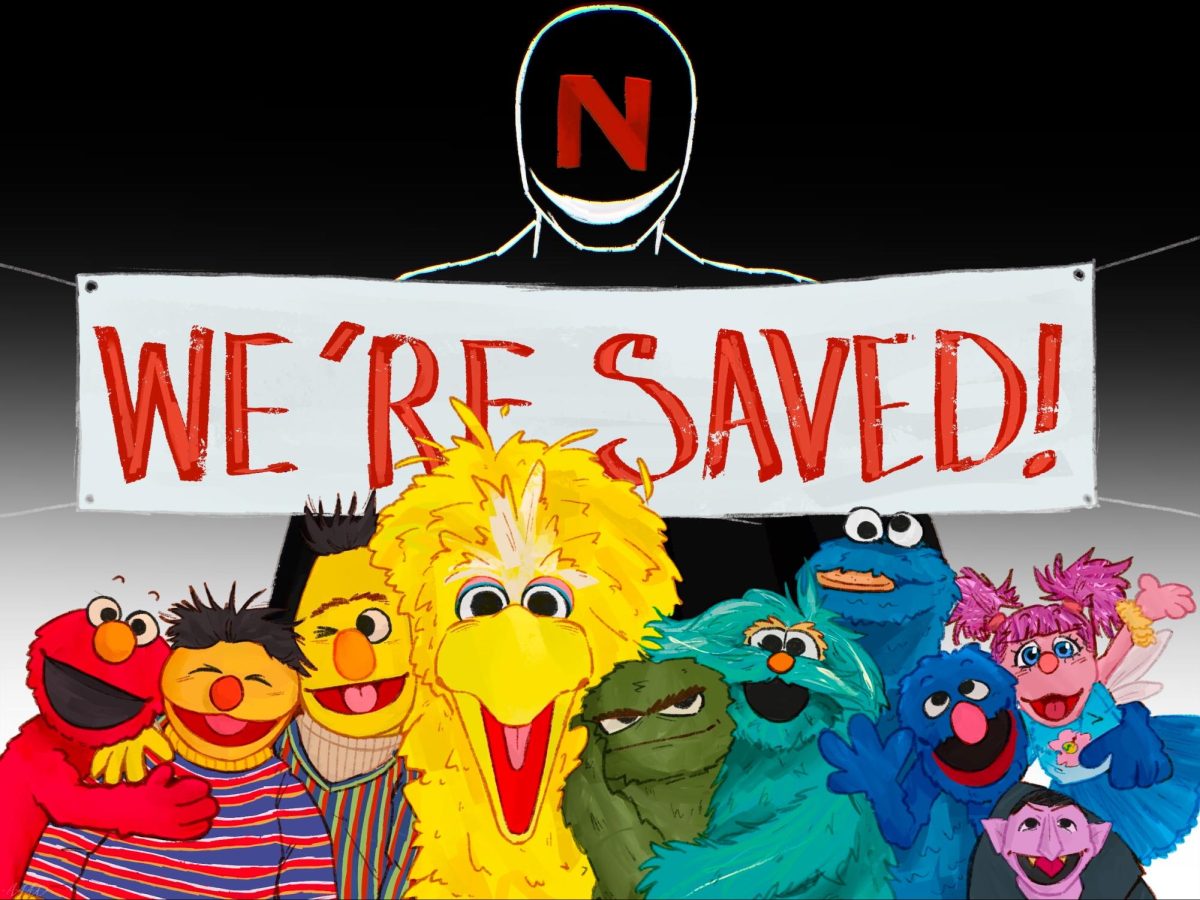David Sloan: Retired NFL player’s story
Provided by David Sloan
David Sloan earned First Alternate honors for 2001 Pro Bowl. He also started for the NFC in the 2000 Pro Bowl.
Jun 1, 2023
He never planned to go pro, but 199 receptions, 2251 yards and 17 touchdowns later, he ranked 88th on Detroit Lions Top 100 All-Time Players.
David Sloan reached three playoffs with the Detroit Lions (1995, 1997 and 1999), started for the National Football Conference in the 2000 Pro Bowl and earned First Alternative Honors for 2001 Pro Bowl. He was also featured in the NFL’s All Strength Team in 1999 and voted by Muscle & Fitness Magazine in 1999 as having one of the 10 Best Physiques in the NFL.
“Going pro was a dream,” Sloan said. “Every little boy grows up thinking about it while watching sports.”
Sloan started playing basketball in high school and continued playing for Fresno City College, a junior college.
“I was a good player for junior college, but I didn’t have the opportunity to go play at a four-year school,” Sloan said. “I kinda refused to accept that would be the end of my sporting career, but I didn’t have the financial resources to be able to pay for a four-year school at that time.”
Since he had prior experience with football in school, Sloan decided to give it another try during his last semester in college. The head coach agreed, and Sloan played a season as a tight end with 13 receptions, 254 yards and four touchdowns.
“It was rough since I didn’t play for a couple of years, but I applied my work ethic and it ended up having good results,” Sloan said.
After two and a half years, he transferred to New Mexico University and was a two-year tight end starter with 37 receptions, 436 yards and four touchdowns under his belt.
“If you could imagine a bunch of boys who didn’t have to grow up until later, that’s what playing pro was like,” Sloan said. “You got to prolong getting the real job, so it was kind of like extending your college career by playing pro.”
One of Sloan’s fondest memories was playing practical jokes on rookies. One of his favorite pranks was to tape his teammates to a locker stool and place them in cold tubs.
“No one was allowed to set you free, but usually the athletic trainers would take pity on you and cut you loose after a while,” Sloan said. “So nothing too serious, but fun; if you roll with it and have the mindset that your time will come when you get to be the one doing the hazing to the rookies, then it can be a lot of fun.”
Sloan said his best year was in 1999 when he played for the Detroit Lions (1995-2001) and his most memorable moment was a home game versus the Green Bay Packers.
“I caught a guy by surprise by outrunning him and scored a 74-yard touchdown,” Sloan said. “It’s pretty cool to have people you grew up with to call you and say, ‘Hey man we saw you at the sports center, that’s amazing’ and all those things.”
After his contract for the Detroit Lions was over, Sloan played for the New Orleans Saints from 2002-2003.
“At the time I wished I had finished my career with Detroit or had my contract renewed,” Sloan said. “It puts a chip on your shoulder especially after you put seven years into a team.”
Sloan had to play against his former team when he joined the Saints. He was motivated to win the game and ‘show them up,’ but Sloan said it was the worst game he ever played.
“I was caught up in holding a grudge against my former team and wanting to impress and showing them they made a mistake,” Sloan said. “I psyched myself out and ended up proving their point.”
Sloan said he learned a valuable lesson: Don’t worry about what other people say, just do your job and the task at hand.
“Even after playing for seven years you think I would have learned that, but I fell victim to it too,” Sloan said.
Another lesson Sloan learned was allowing your body to heal at its own rate. He said that a common mistake that most people make in this specific environment is that players are in a hurry to get back to normal.
“No matter how strong or macho you think you are, you have to let yourself heal,” Sloan said. “What gives you longevity in this career is the ability to stay healthy and complete at the level you need to.”
The pivotal moment of Sloan’s career was when he suffered from a metatarsophalangeal joint sprain, also known as “turf toe,” in 1999. Since the season was going great and they were playoff bound, Sloan was hesitant to take some time off.
“When I hurt my foot, I knew that if I took time to heal, it would hurt my team and standing in the team,” Sloan said. “I continued to play in the midpoint of the season, and it did so much damage to my foot that it caused more injuries.”
His awkward landing started the chain reaction of other injuries.
The first time Sloan blew out his knee, he tore his lateral collateral ligament (LCL), medial collateral ligament (MCL) and his anterior cruciate ligament (ACL). It caused him several surgeries and rehab during off-seasons.
“I caught a pass and the guy tackled me and he went through my knee, and I planted wrong,” said Sloan. “It was on the old artificial turf, not the stuff they play on now, so it didn’t have a lot of give in it. When you don’t land the right way or get tackled, it usually doesn’t end well.”
Sloan said the hardest part of his football career was facing the inevitable injuries. Depending on the player’s contracts, they might not have full coverage when injured.
“When I played there wasn’t guaranteed money, so when you aren’t on the field playing, you don’t get money, ” Sloan said. “When you get injured, there is a good chance you will lose your job. Overcoming injuries was the toughest part of my career.”
Sloan had access to “some of the state of the arc” health care including medicine, doctors and rehabilitation. Sloan had surgeries every off-season in his career except for the first year.
“They’re spending so much money on you as a player and as a product,” Sloan said. “They wanna spend equally as much time to keep the product healthy to keep the product on the field.”
Due to the severity of Sloan’s injuries, he had to quit by his ninth year in the NFL.
“You get to the point where you accumulate enough injuries where you can’t keep up with everyone else to the level you need to,” Sloan said. “There’s always someone new, young and healthy that’s ready to take your spot.”
Despite the tumultuous times, Sloan said it taught him to be humble.
“When you start feeling vulnerable when you’re hurt,” Sloan said. “It makes you realize that every play is a gift, and it’s a blessing to play at any time at all. It makes you very grateful for it.”
He kept football in his life by coaching. He began his coaching journey in 2009 at Southwest Baptist University and helped lead the team to winning their first winning record since 2001. Adding to his resume, Sloan then coached at Rice University from 2012-2017 as a recruiting coordinator.
Coaching came naturally to Sloan since he was emulating his former coaches’ techniques and playbook.
“I learned a lot about how to coach from my mentor at Rice, David Bailiff,” Sloan said. “His style of coaching was good as gold.”
Since Sloan had coaching experience, teaching was a parallel field he could pursue. He started teaching government and economics at Bellaire in 2020.
“I had kids here in Houston, so I wanted to move closer to where they are,” Sloan said. “Teaching in a highschool gave me that opportunity.”












